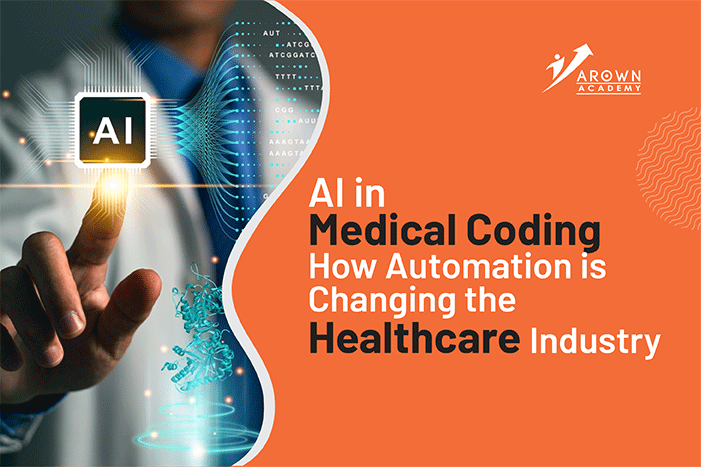Today, artificial intelligence (AI) is more than just a catchphrase; it is revolutionising a number of industries, with the healthcare sector leading the way. One field that is undergoing a radical change is medical coding, where AI is simplifying procedures, cutting down on mistakes, and freeing up coders to concentrate on important decision-making duties.
Let's examine how AI in medical coding is having immediate effects, as well as potential future developments and issues that professionals should be aware of, while the AGS Health blog highlights the effectiveness of AI and Jorie AI highlights the role of automation in revenue cycle management.
What does AI mean for medical coding?
AI in medical coding reads, interprets, and assigns medical codes from patient records more quickly and accurately than manual coding by utilising Natural Language Processing (NLP) and Machine Learning (ML).
What Impact is AI Having on Medical Coding?
1. Enhanced Speed and Efficiency
As coders must review intricate medical records in order to assign precise ICD-10 or CPT codes, traditional coding is time-consuming. Coders don't have to start from scratch when coding because AI-powered tools can pre-code records in a matter of seconds.
2. Enhanced Precision & Decreased Errors
Revenue loss and claim rejection are possible outcomes of manual errors. Through learning from past data, AI algorithms increase the accuracy of codes and adherence to payer policies.
3. Assisting Coders Rather Than Replacing Them
AGS Health and Jorie AI highlights that rather than taking the place of programmers, AI serves as an aid. For the review of unclear documentation and complex cases requiring clinical judgement, human intervention is essential.
4. Optimisation of Real-Time Claims
In order to guarantee optimal reimbursements and clean claims, AI can identify possible under- or over-coding problems prior to claims submission.
5. Improving the Management of the Revenue Cycle (RCM)
With its smooth integration into RCM procedures, automation improves cash flows, shortens turnaround times, and lessens the administrative load on healthcare providers.
AI-Powered Medical Coding in the Future
Hybrid Coding Model
Coders will collaborate with AI tools in the future. Coders will become clinical documentation improvement (CDI) specialists, validators, and coding auditors.
Upskilling Is Now Required
To remain current, medical coders will need to improve their knowledge of advanced coding standards, healthcare data analysis, and AI tool usage.
Considerations for Data Security and Ethics
Healthcare organisations must guarantee adherence to patient data privacy laws such as HIPAA, even though AI provides speed.
The Difficulties of Integrating AI
- Initial Implementation Costs: AI tools necessitate a large software investment, training, and integration with current electronic medical records.
- Problems with Data Quality: Inaccurate AI coding recommendations can still result from records with inadequate documentation.
- Change Management: Coders may oppose automation because they fear losing their jobs, necessitating organisational assistance and upskilling initiatives.





